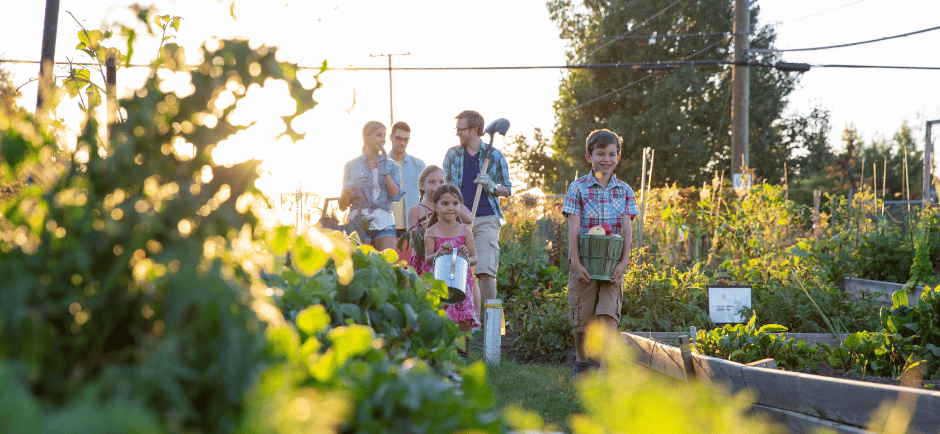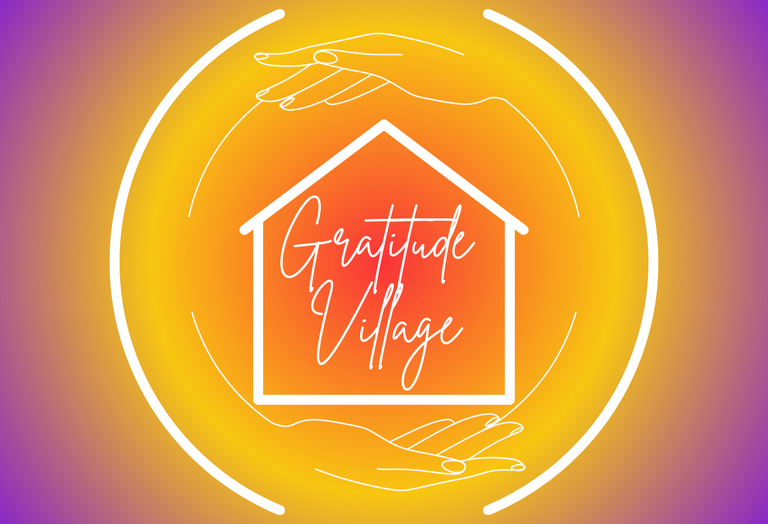Zoom Info Session Thursday February 26, 2026 5:30-6:30PM Mountain Time
Homegrown Sustainability: The Role of Edible Landscapes in Cohousing
In an era where sustainability is no longer optional but essential, cohousing communities are emerging as leaders in environmentally responsible living. Among the many strategies used to promote sustainability, edible landscaping stands out as a powerful tool for fostering food security, resilience, and community connection. At Gratitude Village, edible landscapes are not just an aesthetic choice but a fundamental part of our vision for a net-zero, community-driven future.
Gratitude Village
4/19/20253 min read


Homegrown Sustainability: The Role of Edible Landscapes in Cohousing
In an era where sustainability is no longer optional but essential, cohousing communities are emerging as leaders in environmentally responsible living. Among the many strategies used to promote sustainability, edible landscaping stands out as a powerful tool for fostering food security, resilience, and community connection. At Gratitude Village, edible landscapes are not just an aesthetic choice but a fundamental part of our vision for a net-zero, community-driven future.
What is Edible Landscaping?
Edible landscaping is the practice of integrating food-producing plants into residential and communal spaces. Instead of traditional ornamental lawns and flowerbeds, an edible landscape features fruit trees, berry bushes, herbs, and vegetable gardens, all woven seamlessly into the environment. This approach transforms green spaces into productive ecosystems, providing fresh, organic produce while reducing reliance on external food sources.
The benefits of edible landscaping extend beyond the obvious yield of fruits and vegetables. It encourages biodiversity, attracts pollinators, reduces food miles, and enhances soil health through natural composting and mulching. Moreover, it fosters a sense of community, as residents come together to plant, maintain, and harvest their shared bounty.
The Role of Permaculture in Edible Landscaping
A key principle behind edible landscaping is permaculture, a design philosophy that mimics natural ecosystems to create sustainable, self-sufficient environments. Permaculture emphasizes three core ethics: care for the earth, care for people, and fair share. It incorporates techniques such as companion planting, water harvesting, and no-till gardening to maximize efficiency while minimizing environmental impact.
In a cohousing community like Gratitude Village, permaculture plays a crucial role in shaping our edible landscape. By applying permaculture principles, we create resilient food systems that require less maintenance and external inputs. Perennial plants such as fruit and nut trees provide long-term food security, while dynamic guilds of plants work together to enhance soil fertility and deter pests naturally. Rainwater collection and greywater reuse ensure that our gardens remain lush and productive, even in drier climates.
Edible Landscaping at Gratitude Village
At Gratitude Village, we envision a community where food grows all around us. Our edible landscaping initiatives will transform our shared spaces into vibrant, nourishing environments that reflect our commitment to sustainability and self-sufficiency. Here’s how we’re integrating edible landscapes into our cohousing model:
1. Community Gardens
Our community gardens will serve as the heart of our edible landscape, offering residents the opportunity to grow their own food while learning and sharing gardening skills. Raised beds, vertical gardens, and greenhouse spaces will ensure year-round food production, while composting systems will recycle organic waste into nutrient-rich soil.
2. Food Forests and Perennial Edibles
We plan to establish food forests—diverse plant systems that mimic natural ecosystems and provide a continuous yield of fruits, nuts, and medicinal plants. These self-sustaining landscapes will include layers of edible vegetation, from towering fruit trees to ground-covering herbs, creating a resilient and productive food source.
3. Public Edible Spaces
Imagine strolling through Gratitude Village and picking fresh apples, plums, or figs from trees lining the pathways. Our public spaces will feature edible plants accessible to all, reinforcing the idea that food should be abundant and shared. Herbs and edible flowers will line walkways, and grapevines will drape over communal pergolas, creating inviting spaces for relaxation and connection.
4. Pollinator-Friendly Plantings
A thriving edible landscape depends on a healthy population of pollinators. Our gardens will include bee-friendly flowers, native plants, and strategically placed beehives to support local pollinators. By fostering a balanced ecosystem, we ensure that our edible landscapes remain productive and sustainable for years to come.
5. Educational Workshops and Community Engagement
One of the most valuable aspects of an edible landscape is the opportunity for education and engagement. We plan to host workshops on organic gardening, permaculture design, and food preservation, empowering residents with the knowledge to take an active role in their own food security.
A Future Rooted in Sustainability
Edible landscaping is more than just a method of food production—it is a philosophy of abundance, resilience, and sustainability. By integrating edible landscapes into the fabric of Gratitude Village, we are not only reducing our environmental footprint but also cultivating a culture of shared responsibility and connection.
As we build our community, we invite like-minded individuals to join us in reimagining what sustainable living can look like. Whether you’re an experienced gardener or simply someone who values fresh, local food, Gratitude Village offers a unique opportunity to be part of a movement that nourishes both people and the planet.
Together, we are sowing the seeds for a greener, more resilient future—one delicious bite at a time.
COMMUNITY
Join us in embracing nature, diversity and connection.
Sustainability
DIVERSITY
info@gratitudevillageco.com
720-689-4821
© 2026. All rights reserved.
AFFORDABILITY
Gratitude Village Inc. is a 501(c)3 charitable corporation (public charity) that values diversity, equity and inclusion as essential to our mission. EIN #33-2499522
Subscribe to our Substack
Refund Policy




Gratitude Village is a Proud Member of these organizations
